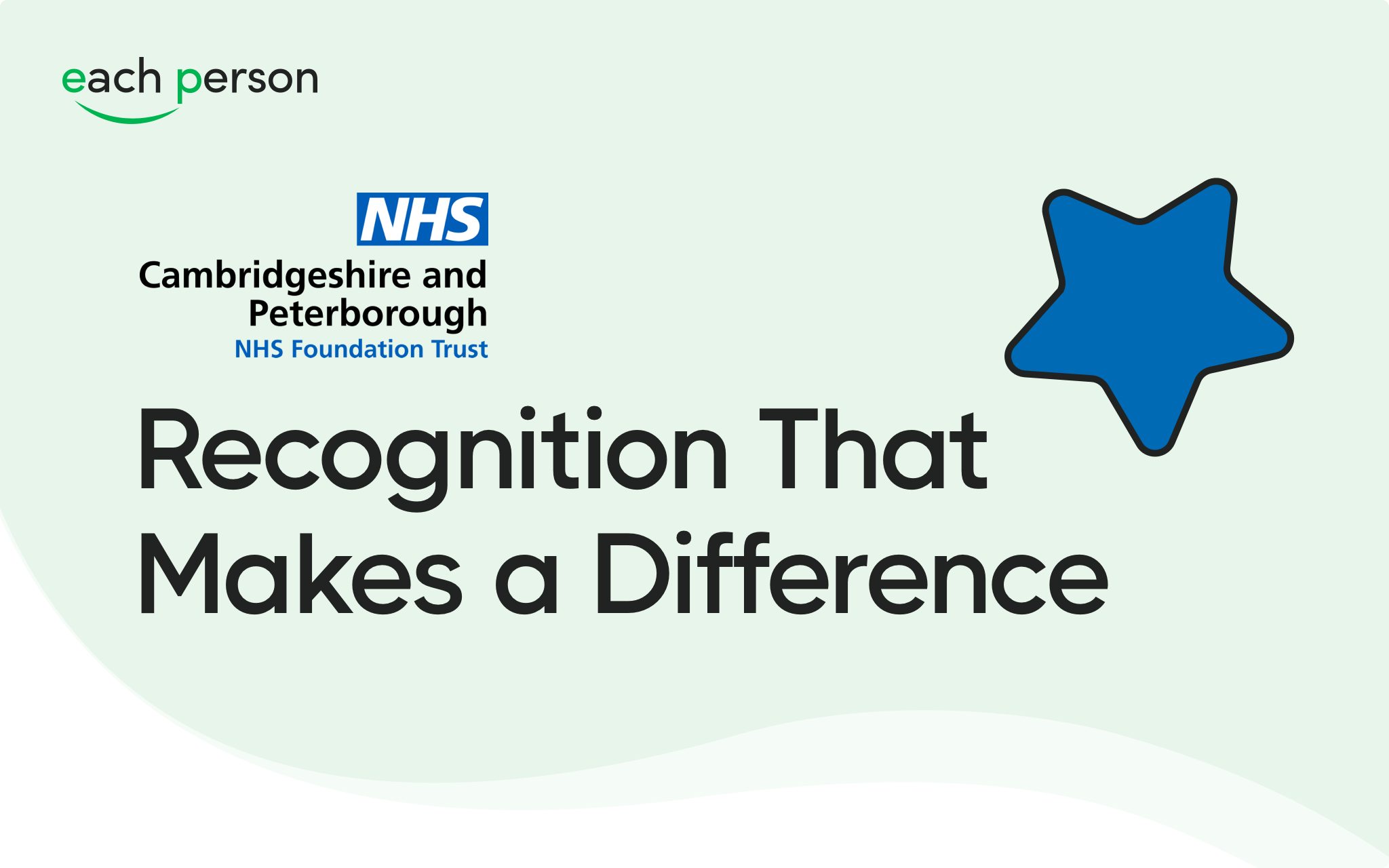Redefining Self-Care in the Workplace in 2025
Explore how self-care really looks at work and how you can make this a priority.

We all know the cliche of self-care as bath bombs and face masks, but few realise how self-care goes beyond having a night in to take care of your appearance or having a quiet weekend. Self-care can be brought into all aspects of life and is so important in areas such as the workplace.
This International Self-Care Day, 24th July, we want to show you how to redefine self-care as setting boundaries, prioritising recovery time, receiving autonomy, valuing emotional safety and having a purpose. The Wellbeing at Work in the UK report found that employee wellbeing trends and priorities peaked in 2020, but have declined steadily since, especially among under-35s and frontline managers (1). Highlighting how it is now time to reflect on what more can be done to stop this decline.
Explore how self-care really looks at work and how you can make this a priority in your workplace below.
What Self-Care Really Looks Like at Work
As an employee, self-care can come in the form of setting boundaries, ensuring you make the most of your annual leave and feeling safe to express your feelings regarding any workplace issues you may be facing or burnout. According to People Insight, only 65% of employees feel that their company is doing enough to protect their health and wellbeing at work (2). Therefore, finding ways you can help protect your own wellbeing is especially important to ensure that you remain positive, motivated and are able to handle your day-to-day expectations.
To prioritise your own self-care at work, we would recommend:
- Taking breaks without guilt – This could mean ensuring you are always taking your lunch breaks, making the most of your annual leave and taking time to rest and recover when you are struggling with your physical or mental wellbeing.
- Being able to say no or flag workload concerns – Be honest about your workload and avoid agreeing to tasks you know you can’t complete within the time frame needed. Try to find a middle ground which stops you from overworking and ensures the task is met appropriately.
- Psychological safety in team environments – It is vital that you are working somewhere you feel safe, and are able to be honest and open without fear of judgment or resistance. We dedicate so much of our time to work, so finding a place you feel comfortable should be a priority.
Why One-Size-Fits-All Doesn't Work
For professionals in senior positions, it is important to consider that caring for your team is not going to be a single approach that will cater to everyone. As individuals, we all have preferences in the way we work, talk about issues and how work fits around our lifestyles and personality types. For example, young childless employees will have different needs compared to parents or carers. Similarly, introverts will respond differently to approaches compared to extroverts.
A report by Mental Health First Aid England (MFHA) found that ‘only 41% of employees feel they can bring their whole self to work, a steep decline from 66% in 2020. Even more concerning, 30% of employees say their organisation sometimes rejects others for being different’ (3). When professionals feel they are being scrutinised for who they are, it can negatively affect workplace morale, productivity and overall retention.
To ensure you are supporting each individual in the right way, you could implement:
- Regular one-to-one meetings – Organise a regular time to talk with individuals in your team in private to discuss how they are managing their workload and if anything can be done to ensure they are comfortable in the workplace.
- Complete personality quizzes – Asking your team to complete personality quizzes can be an informative method to gain an understanding of how to approach them, as well as identify what their strengths and weaknesses are.
- Review workplace policies – Identify if there are any possibilities for flexible working or flexible hours so your team can work in a way that suits their needs and personal commitments. For example, a person with kids may need to finish earlier compared to a childless co-worker. However, they could make up time earlier in the day or later in the evening.
Quick Wins for Self-Care Day
How are you planning to celebrate International Self-Care Day in Your Office? Recognising the day and encouraging your employees to develop their own self-care practices can have a profound impact on your workplace morale, providing a space for a much-needed break.
Here are our top ideas for honouring this special occasion in your organisation:
- Block out a no-meetings hour company-wide
- Give people space to log off early or take a walk
- Share tips or videos on recovery, rest and routine
- Offer gift cards for a team coffee or lunch together
Remember that creating a thriving workplace not only benefits the individuals within it but also sets a new way forward for your business. Self-care shouldn’t be considered as just a typical pamper night, but should be ingrained into every aspect of life, helping build mental and physical resilience to everyday challenges so your people have space to be the healthiest versions of themselves.
Ultimately, self-care at work isn’t about scented candles or smoothie bowls. It’s about resilience, balance, and making space for people to be human. When businesses embrace a deeper definition of self-care, they unlock a culture that fuels innovation, loyalty, and long-term growth.
So this year, ditch the stereotypes and start redefining what it means to truly care for yourself, and for each other.
References:
- Great Places to Work, 2025, ‘Fostering Wellbeing at Work in the UK: 2025’: https://www.greatplacetowork.co.uk/resources/workplace-wellbeing-report-2025
- People Insight, 2025, ‘The ultimate employee wellbeing guide 2025’: https://peopleinsight.co.uk/employee-wellbeing-guide/
- OnHand, 2025, ‘The Belonging Crisis: New Research Reveals Why Employees Feel Excluded & What Businesses Can Do About It’: https://employeebenefits.co.uk/the-belonging-crisis-new-research-reveals-why-employees-feel-excluded-and-what-businesses-can-do-about-it/280494.article










